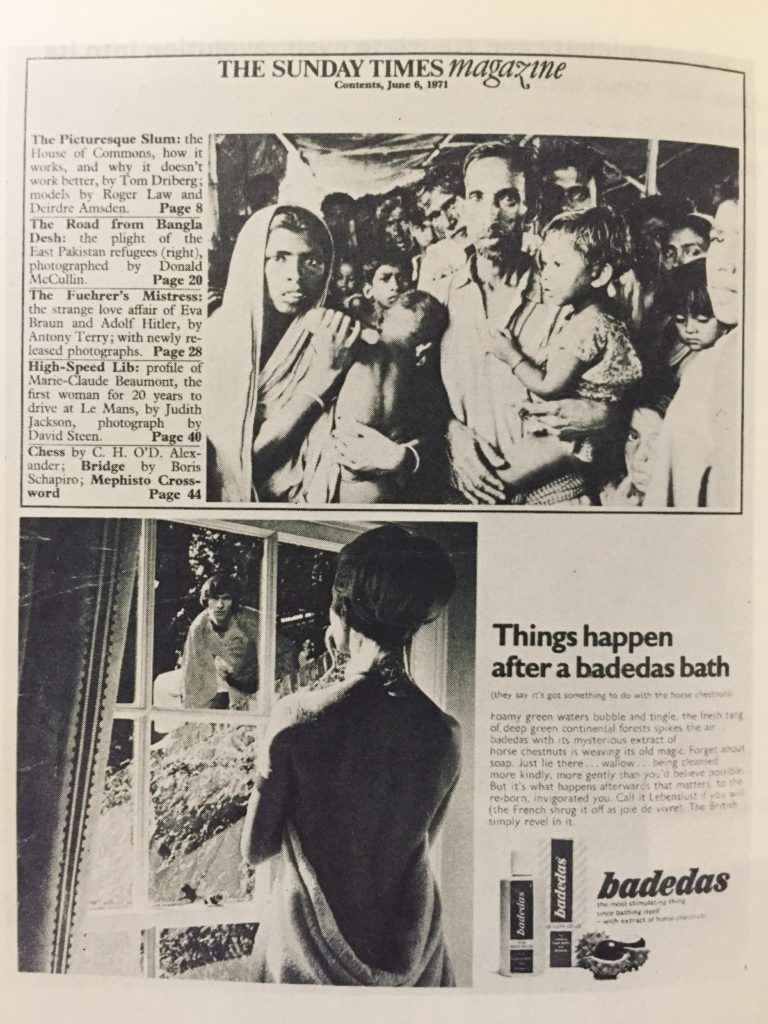196. Is our culture mad? Seeing Facebook through John Berger’s Ways of Seeing

In January of 1972 BBC Two broadcasted a four episode television series called Ways of Seeing written and presented by John Berger (1926-2017). The series was subsequently adapted into the book Ways of Seeing which was published in 1973. Both the book and the series were influential in getting people to not just look at art and images but to really see them in a more inclusive and philosophical manner. In particular, to see them in their social and political context and to be aware how often they are used as instruments for various forms of manipulation.
One of Berger’s many profound insights, an insight that has haunted me for almost 30 years, comes at the end of Episode 4. I recently thought of it yet again as I was scrolling through the many images of Facebook during the coronavirus pandemic. The insight is this:
Any culture that can come to accept the juxtaposition of certain images, namely, images of trivial things with images of profoundly serious things, is, to use Berger’s term, mad.
Berger brings our attention to this newspaper page where we are confronted with images of both Pakistani refugees in dire need of help and a silly advertisement:

The first image appeals to our conscience and has the potential to generate action for the sake of others; the second appeals to our selfish need to be desired and has the potential to undermine the power of the first. Regarding this troubling juxtaposition Berger says: “The words and pictures on these pages all appear to be real and all belong to the same language. The text, the photographs taken in Pakistan, the photographs taken for the publicity, the editing of the paper, the layout, the printing. All are elements of the same culture, our culture. Yet between each page, there is such a fissure, such a disconnection, such incoherence, that one can only say this culture is mad.”
I think Berger’s term “mad” can be interpreted as the inability to distinguish reality from fantasy. Now at first glance this seems tough to accept: surely people, like us, who scroll through Facebook can, when faced with these kinds of juxtapositions, discern reality from fantasy. But what do we mean by discern here? If we include in our meaning something like experiencing with an appropriate emotional response then we need to ask: do we really discern the difference? We scroll and scroll and scroll and one image after the other goes by: a terrifying virus statistic, a tragic death toll, a cute cat, a happy wedding, a political joke, an appeal to help people in Syria, a cool video from the 80s. One after the other. What can we really feel given this particular form of quick information exchange? There is an impetus to keep moving, to keep scrolling, to keep processing. And this impetus can allow us to remain relatively unaffected by the serious images we see. Of course, in some cases this may not be the case. There is much to learn from certain Facebook feeds and we can slow down, research, learn, and be moved to action. But if it is the case that we remain unaffected – and here we need to be honest with ourselves – then I think there is a sense in which we aren’t really discerning the serious images. And then there is the danger that they are becoming publicity images to which we cannot relate at all. In the book Ways of Seeing (Penguin, 1977) Berger explains:
“Publicity is essentially eventless. It extends just as far as nothing else is happening. For publicity all real events are exceptional and happen only to strangers. In the Banglaesh photographs, the events were tragic and distant. But the contrast would have been no less stark if they had been events near at hand in Derry or Birmingham….Publicity, situated in a future continually deferred, excludes the present and so eliminates all becoming, all development. Experience is impossible within it. All that happens, happens outside it.” (153)
This notion of processing images as both events and nonevents is, perhaps, a form of madness – or at least developing madness – against which we should be on guard as we “catch up” on Facebook.

Watch Episode 4 of Ways of Seeing here.
Buy the book Ways of Seeing here.
For my look at the coronavirus pandemic with the wisdom of Edgar Allan Poe, go here.